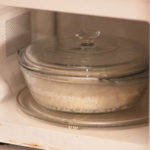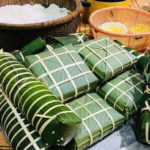Chả lụa often appears in meals during Tet and is found in many dishes such as bread, rolled cake, and beef noodle soup. Despite its popularity, many people are hesitant to consume it due to concerns about the presence of borax. Excessive consumption of borax can lead to adverse effects such as nausea, headache, and diarrhea. In Vietnam, the control of chả lụa is not stringent, resulting in the continued use of borax in food production. To make informed choices when purchasing chả lụa, particularly during Tet, it is important to remember the following guidelines:
1 Choose a reliable source
Appearance
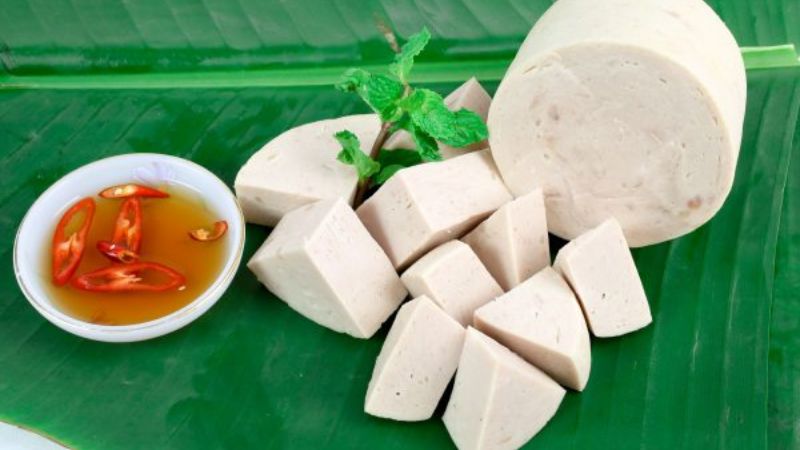 Unappetizing chả lụa
Unappetizing chả lụa
- Observe that good chả lụa has a slightly pinkish white color and a surface with numerous pores.
- These characteristics indicate the use of high-quality ingredients. The meat should be ground to create elasticity, resulting in air pockets when wrapped. During the boiling or steaming process, these air pockets expand, forming the pores.
- If the chả lụa has few pores, it may indicate the use of a significant amount of flour or low-quality ingredients.
- Another sign of good chả lụa is that it sticks to the knife when cut, demonstrating a smooth and slightly moist texture. Difficulty in cutting or a knife getting slightly stuck suggests the presence of good chả lụa.
Aroma
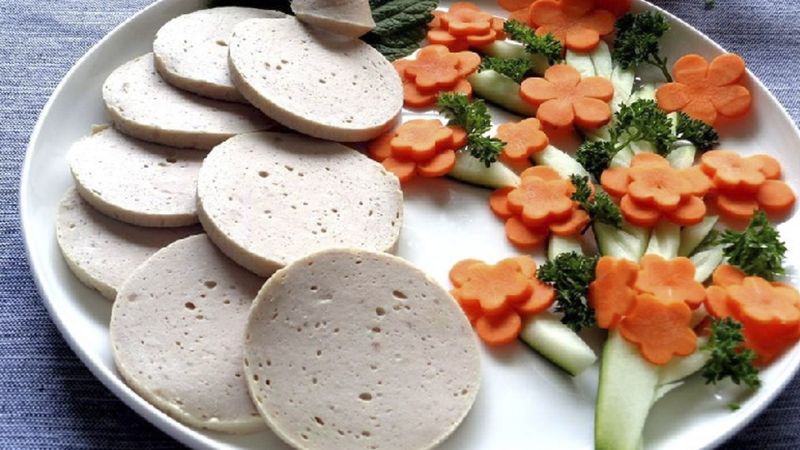 Smelling the aroma of chả lụa
Smelling the aroma of chả lụa
- Good chả lụa should have a faint aroma of the unique fragrance of cha mixed with a hint of banana leaves, which is very appealing.
- A strong aroma may indicate the use of excessive flavorings, so it is advisable to avoid such chả lụa.
- Additionally, it is important not to purchase chả lụa that is yellow in color, greasy, foul-smelling, or wrapped in dry and old leaves.
Taste
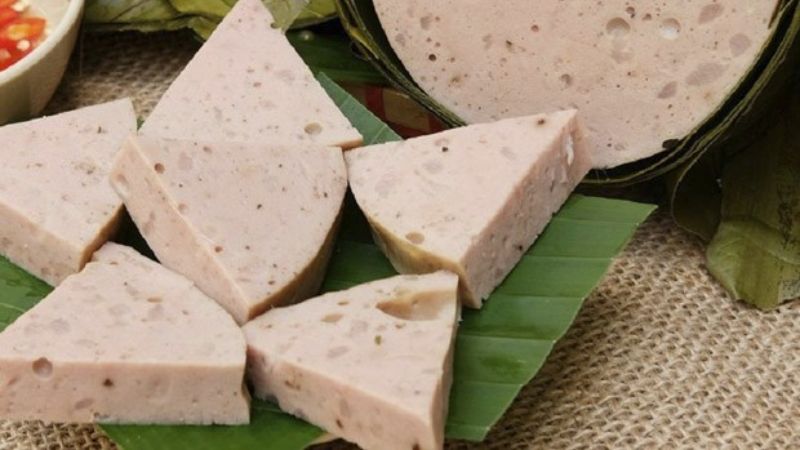 Tasting chả lụa
Tasting chả lụa
- To ensure safety and choose the most delicious chả lụa, it is advisable to taste it. Good chả lụa should have a slightly sweet and crispy taste, tender and moist texture, and no strange odor. It should maintain a firm and moist consistency.
- If the chả lụa is mushy, lacking fragrance, and does not have many pores on the surface, it may contain excessive flour. If it is firm, crispy, and smooth, it may have been mixed with borax during processing. In such cases, it is best to avoid purchasing it.
2 Choose to buy fried chả lụa
Appearance
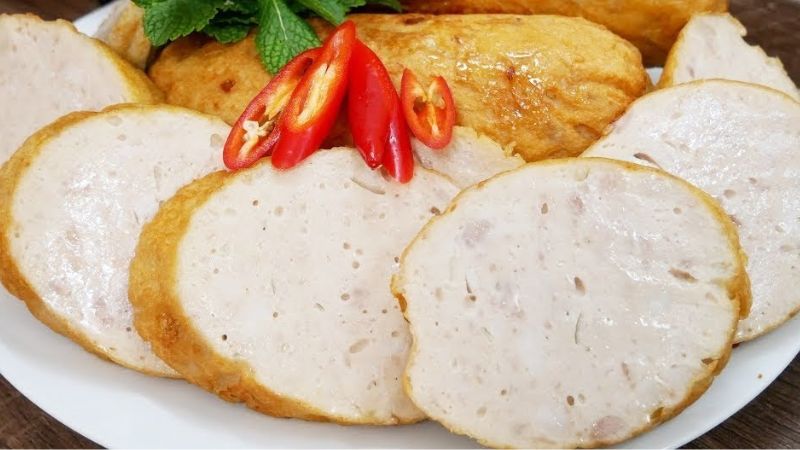 Observing fried chả lụa
Observing fried chả lụa
- Good fried chả lụa should have a natural yellow color and a slightly rough outer layer. The inside should be extremely soft, smooth, and have many pores.
- When touched, the fried chả lụa should be soft, slightly wet, and not sticky, containing only fat. This indicates the presence of good chả lụa.
Aroma
Smelling the aroma of fried chả lụa
- Good fried chả lụa will have a rich aroma. An unusual aroma may indicate the presence of borax.
Taste
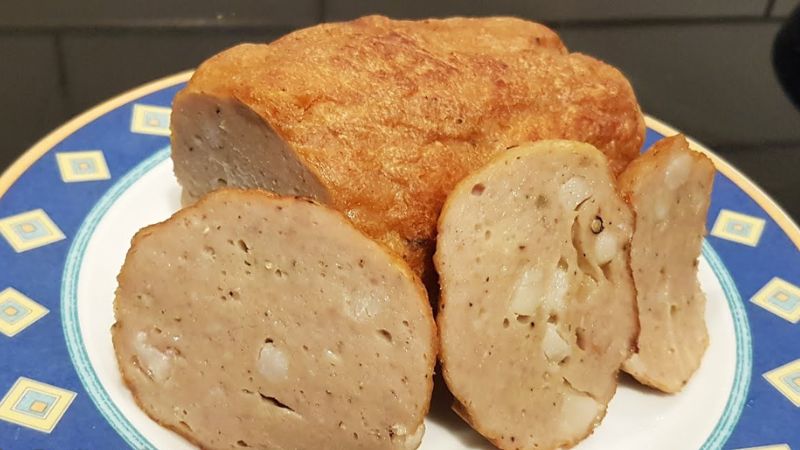 Tasting delicious fried chả lụa
Tasting delicious fried chả lụa
- Tasty fried chả lụa should neither be rotten nor too dry and hard. If it feels mushy, lacks the sense of fat or the unique aroma of meat, and lacks pores on the surface, it may have been mixed with excessive flour. It is advisable to avoid purchasing such chả lụa.
3 Important notes
In light of the increasing prevalence of contaminated food, it is crucial for consumers to be knowledgeable about clean food and make informed choices for their families.
Purchase from reputable stores
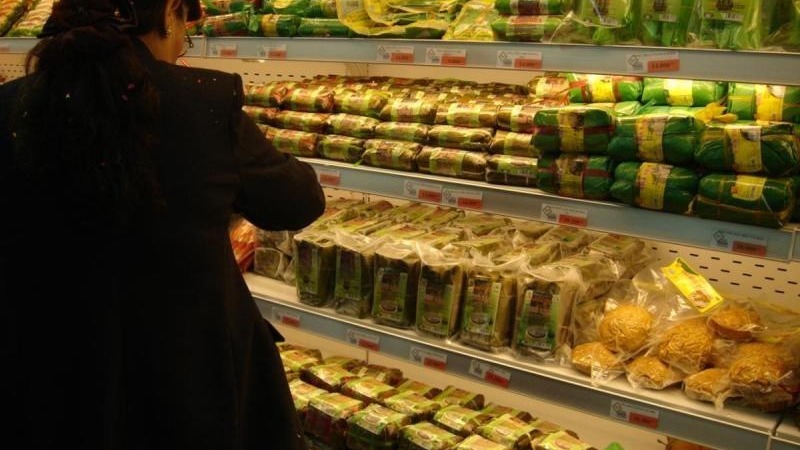 Purchase from reputable stores
Purchase from reputable stores
Given the prevalence of contaminated food, it is essential to purchase chả lụa from reputable stores that provide guaranteed sources. These stores offer products with clearly stated origins, production dates, and expiration dates. Moldy products or those with unpleasant odors should be avoided.
Only buy the necessary quantity
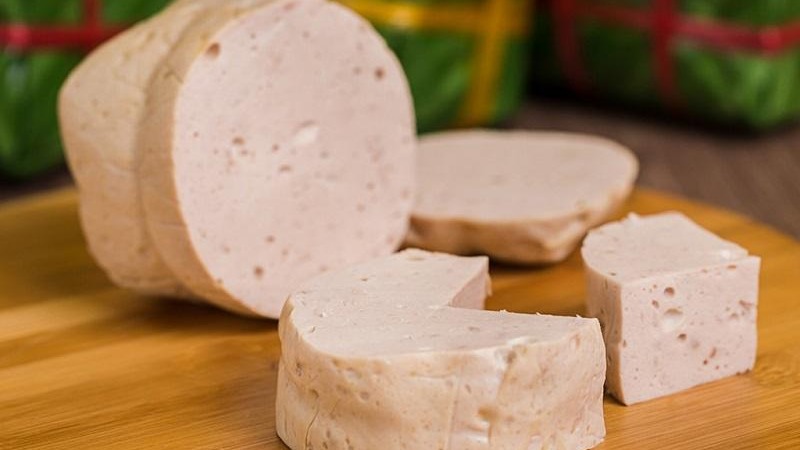 Only buy the necessary quantity
Only buy the necessary quantity
It is important to avoid purchasing excess chả lụa as it will lose its nutritional value when stored for too long. Estimate the required quantity before making a purchase.
Properly store chả lụa
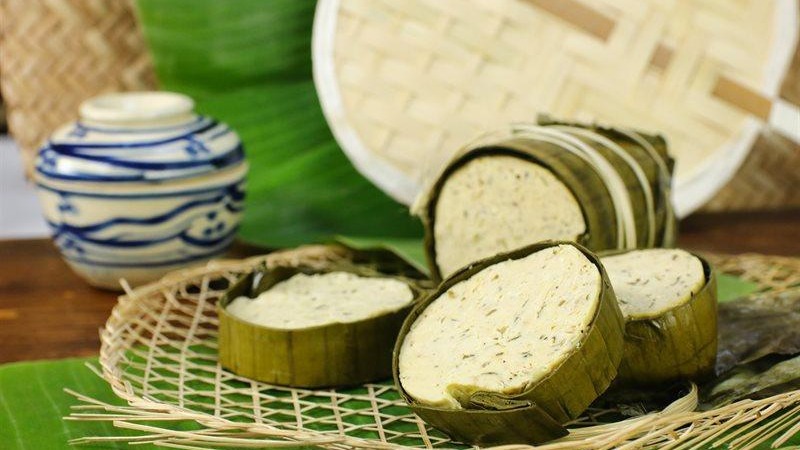 Properly store chả lụa
Properly store chả lụa
Chả lụa spoils easily if not stored properly. The recommended method for storing chả lụa is to place it in the refrigerator to preserve its original flavor. Before refrigeration, remove the outer wrapping leaves to prevent sweating. The best time to use chả lụa and ensure its quality is within 5 days.
Above are some guidelines for purchasing chả lụa from the market. Apply these tips to ensure the health of your family, especially during Tet.
8 Common Mistakes People Make with Cutting Boards
Are you using your cutting board correctly? Many Vietnamese households rely on cutting boards in their kitchen, but not everyone knows how to use them properly, especially when it comes to wooden cutting boards. Check out these 8 mistakes to avoid when using a cutting board to ensure both hygiene and safety for everyone in your family.
Is Refrigerated Leftovers Linked to an Increased Risk of Cancer?
Dr. Lam Van Man, Head of Research, Development and Technology Transfer Department of the Institute of Safety Food, has warned of the risk of food poisoning when reheating leftovers from the refrigerator. But what should we be aware of when it comes to the possibility of these leftovers causing cancer? Here, we explore what the experts have to say on the matter and offer some tips for safe eating.
Preserving Leftover Food from the Tet Holiday
With the beginning of the Lunar New Year, many households are stocking up on food to celebrate the festive occasion. While keeping food in the refrigerator is convenient, it can also be harmful to users if not done correctly. We have compiled a few tips to help ensure food remains fresh and safe to consume during Tet.
























